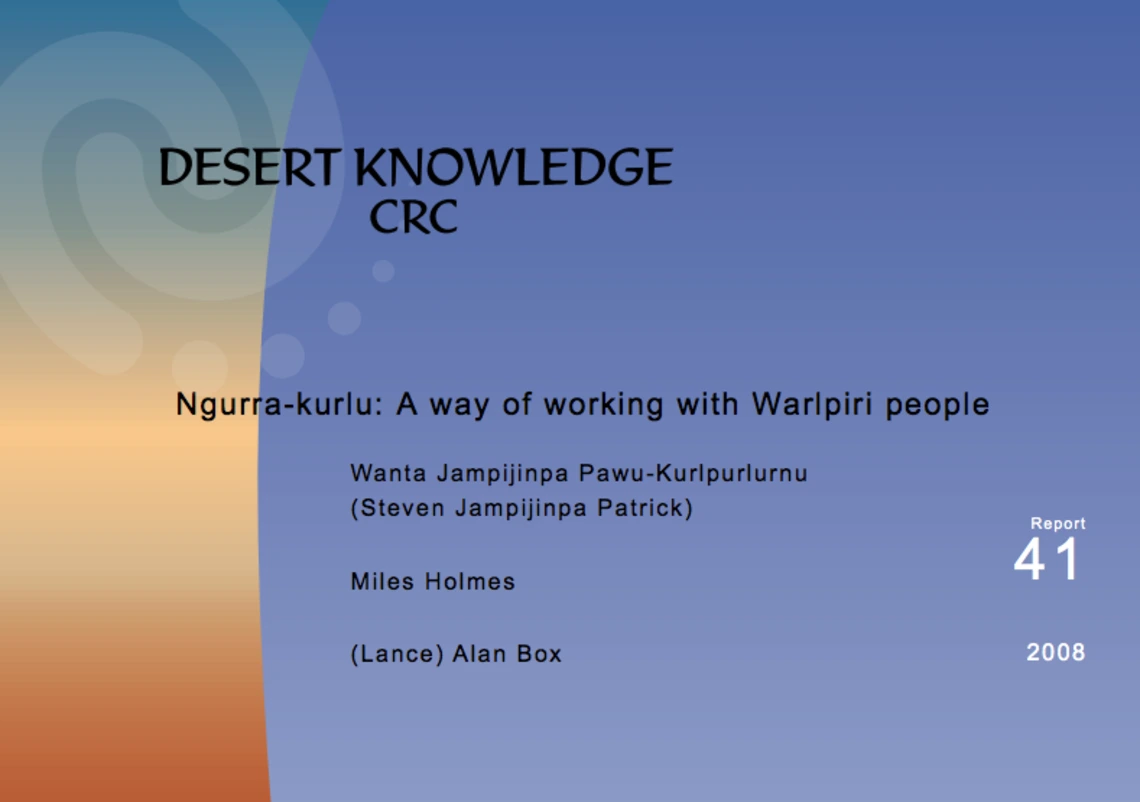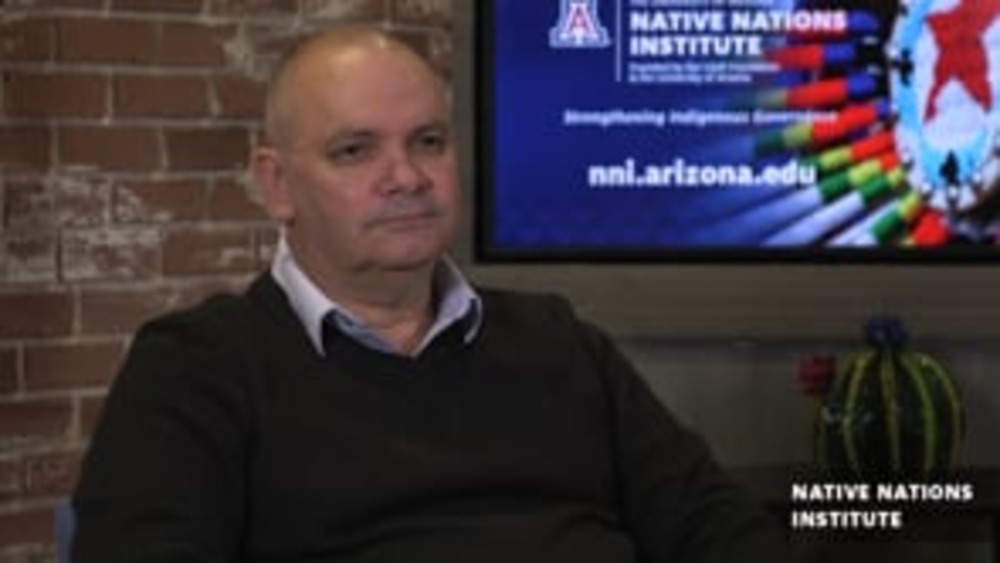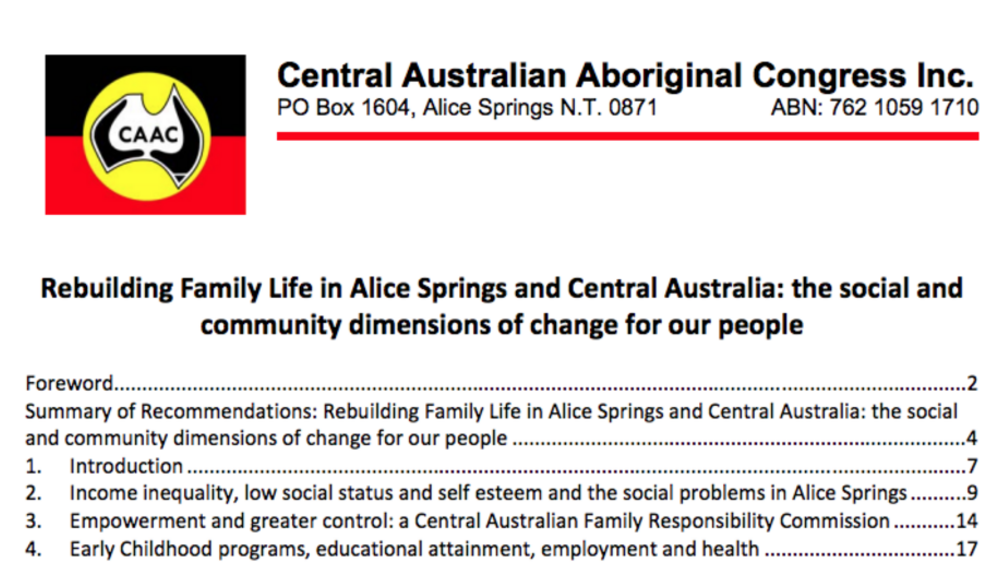Ngurra-kurlu is a representation of the five key elements of Warlpiri culture: Land (also called Country), Law, Language, Ceremony, and Skin (also called Kinship). It is a concept that highlights the primary relationships between these elements, while also creating an awareness of their deeper complexities. Understanding ngurra-kurlu has many benefits for Warlpiri and also for those who work with them. It can be thought of as:
- a template for the whole of Warlpiri culture
- an efficient pedagogy (way of teaching)
- a process for building identity and self esteem
- a way of looking after the health of people and the health of country
- a framework to create successful projects that are relevant to Warlpiri people.
While ngurra-kurlu is grounded in Warlpiri culture, there are similar structures in many Australian Aboriginal groups and therefore the ideas in this paper are likely to be applicable beyond Warlpiri Country.
Additional Information
Wanta Jampijinpa Pawu-Kurlpurlurnu, Miles Holmes, & (Lance) Alan Box. Ngurra-kurlu: A way of working with Warlpiri people. Desert Knowledge Cooperative Research Centre Report Number 41. Alice Springs, Northern Territory. Australia. 2008. Report. (http://www.nintione.com.au/resource/DKCRC-Report-41-Ngurra-kurlu.pdf, accessed May 30, 2024)




